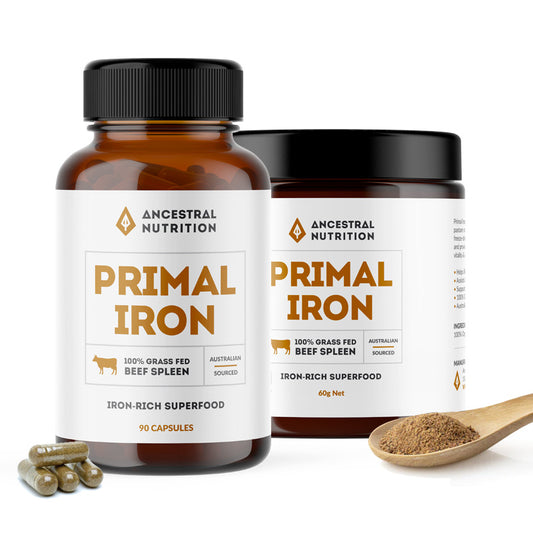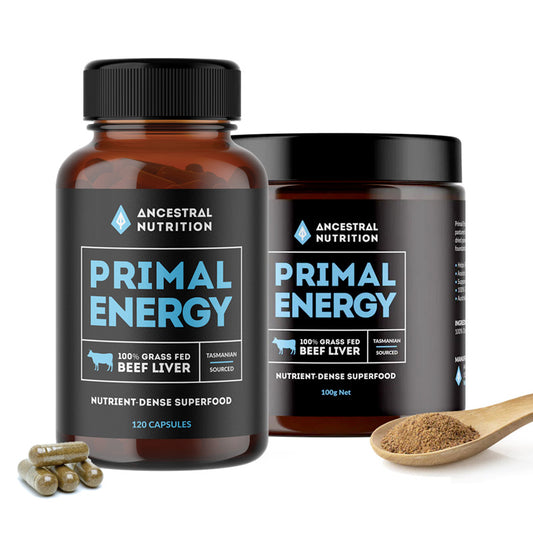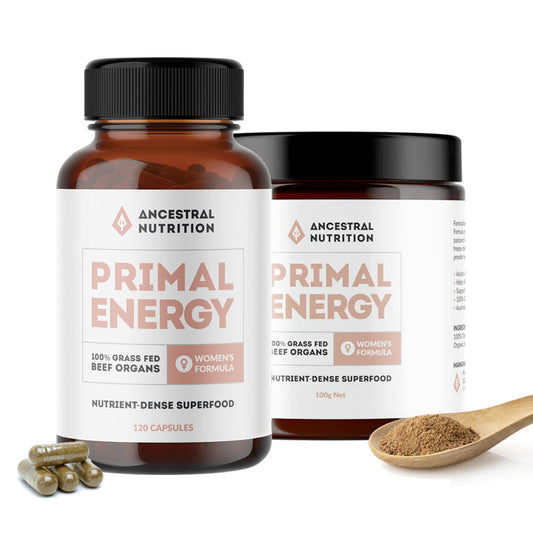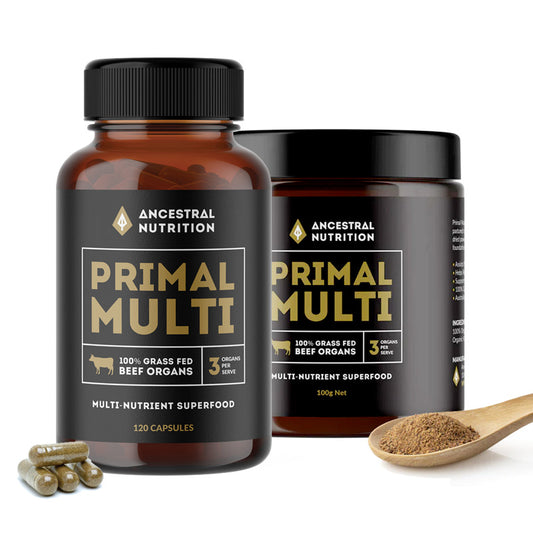Is Iron From Plants or Meat Better?
article by Ancestral Nutrition
Iron is an essential nutrient that plays a key role in our wellbeing. It supports oxygen transport in the body and contributes to normal energy production and immune system function.
In this article, we explore the different types of dietary iron, compare animal and plant sources, and highlight foods — like liver — that are naturally rich in this important mineral.
Why Iron Matters
Iron contributes to:
- Normal formation of red blood cells and haemoglobin
- Normal energy-yielding metabolism
- Transport of oxygen in the body
- Support of the immune system
The amount of iron you need depends on your age, sex, and life stage. The recommended daily intake (RDI) in Australia is approximately:
- Men over 19 years: 8 mg
- Women 19–50 years: 18 mg
- Women over 51: 8 mg
- Pregnant women: 27 mg
- Breastfeeding women: 10 mg
The Two Types of Dietary Iron
-
Heme Iron
Found in animal-based foods like red meat, liver, poultry, and seafood, heme iron is generally more easily absorbed by the body — with a typical absorption rate of up to 18%. -
Non-Heme Iron
Found in plant-based foods such as legumes, tofu, whole grains, and leafy greens. This form is less readily absorbed (5–12%) due to compounds like phytates and oxalates, which can reduce uptake.
Including a source of vitamin C (such as citrus, capsicum, or tomatoes) in a meal can help improve non-heme iron absorption.
Iron-Rich Foods
- Animal-Based (Heme Iron)
- Beef or chicken liver
- Mussels and oysters
- Lean red meat
- Sardines and tuna
- Plant-Based (Non-Heme Iron)
- Lentils, beans, chickpeas
- Tofu and soybeans
- Spinach and kale
- Pumpkin seeds and quinoa
Both sources can play a role in a balanced, iron-supportive diet.
Why Liver Stands Out
Beef liver is one of the most nutrient-dense wholefoods available. It is rich in:
- Heme iron
- Vitamin A (preformed retinol)
- B vitamins (including B12, folate, and biotin)
- Copper and selenium
These nutrients contribute to normal energy metabolism, red blood cell formation, and overall wellbeing.
Prefer Not to Eat Liver?
If preparing and eating organ meats isn’t your thing, that’s okay. For those seeking a convenient way to support their intake of iron and other essential nutrients, freeze-dried liver supplements may be a practical wholefood option.
At Ancestral Nutrition, our Primal Energy Beef Liver capsules are:
- Sourced from 100% grass-fed, grass-finished Tasmanian cattle
- Freeze-dried to preserve delicate nutrients
- Non-defatted, retaining natural fat-soluble vitamins
- Free from hormones, antibiotics, and GMOs
They’re a simple, no-prep way to add nutrient-rich organ support to your diet — especially for those following a wholefood or ancestral eating pattern.
Always read the label and follow the directions for use. Nutritional supplements should not replace a balanced diet. If you have specific dietary needs, consult a qualified healthcare practitioner.




